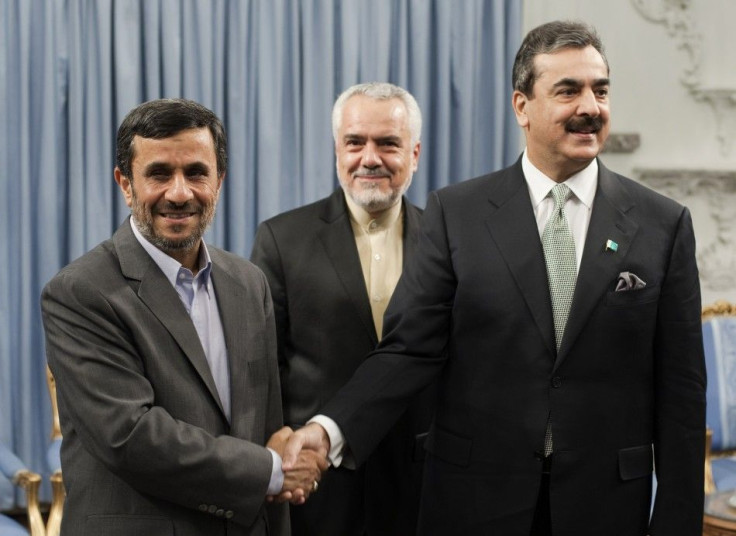Pakistan: Controversial Iran Pipeline Gets the Go-Ahead

A multi-billion dollar energy deal between Pakistan and Iran is still on, Pakistani officials said on Thursday. Despite international pressure agianst the pact, Pakistan said it would honor a 2010 deal to build a natural gas pipeline that will eventually send 8.7 billion cubic meters of Iranian gas to Pakistan annually.
Pakistan is pursuing important projects with Iran such as gas pipeline, electricity transmission and also building a more robust trade partnership between the two countries, Foreign Minister Hina Rabbani Khar said.
All of these projects are in Pakistan's national interest and will be pursued and completed irrespective of any extraneous consideration.
Pakistan is currently in the midst of an energy crisis, and can only produce 80 percent of the energy the country needs. While the $7.5 billion gas pipeline is being built -- it is expected to be completed by 2014 -- Pakistan has also asked Iran to ship in tens of thousands of more barrels of oil per day to help satiate its energy needs.
The United States, already wary of Pakistan and at odds with Iran, is trying to stop the plan. Secretary of State Hillary Clinton said that sanctions would be imposed on Islamabad if it went ahead with the project.
“We have been very clear in pointing out the consequences of building this pipeline,” Clinton told the House Appropriations Subcommittee on State and Foreign Operations.
What we are intending to do is to ratchet up these sanctions as hard and fast as we can, she said. “[This] would be particularly damaging to Pakistan because their economy is already quite shaky.”
The U.S. has been leading the charge on Iran sanctions in hopes of re-starting nuclear negotiation talks. Along with the European Union, the U.S. is hoping that punitive economic measures will put pressure on the Iranian regime, which is thought to be developing nuclear weapons. However, the new Pakistan-Iran purchasing agreement challenges the progress made so far.
We can't afford to be selective where we receive our energy supplies from, Khar stated on Thursday. It is in our national interest to get energy from wherever we can.
According to Clinton, the United States has been encouraging Pakistan to utilize Turkmenistan, Afghanistan, and India's resources, as well as to develop their own, better energy infrastructure.
“We think that that is a better alternative, both in terms of predictability and to avoid doing business with Iran,” Clinton said.
© Copyright IBTimes 2025. All rights reserved.





















